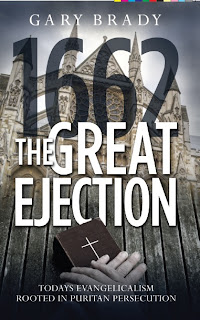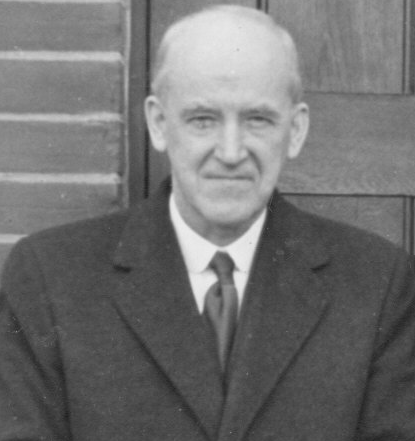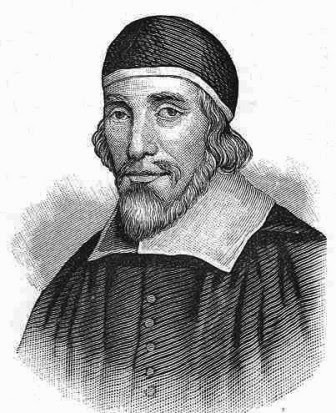The
book Principles
and practises of several nonconformists was published in London in 1682. Its tagline says that it is a
book Wherein
it appears that their religion is no other than what is profest in
the Church of England.
The
modern historian Professor N H Keeble says of the Account
that
it is
a
classic defence of the nonconformists' faith as conscientious and
practical protestantism, of ‘healing principles’ and the same
‘Catholick Spirit’ as the established church (23), against
caricatures of it as ‘a mixture of folly and villany … turbulent
and seditious’ .
It
is marked he says “by succinctness, lucidity, and accessibility”.
The
small sized book is not a long one consisting of only just over 30
pages. On the title page it says that it is written by nonconformists
in
vindication of themselves and others of their persuasion, against the
misrepresentation made of them and an hearty desire of unity in the
church and of peace and concord among all true Protestants for the
strengthening of their common interest in this time of their common
danger.
Corbet
Richard
Baxter wrote the foreword to it but the author is a lesser known man
called John
Corbet (1620-1680). Let me say something about Corbet here. He was
the son of a Gloucester shoemaker and was born in 1620. He went from
the grammar school in Gloucester to Magdalen Hall, Oxford, in 1636,
getting his BA three years later. He then took up a lectureship at St
Mary-de-Crypt in Gloucester in 1640, also working as an usher or
assistant in the free school attached to the church. When Gloucester
was garrisoned for the parliament, he was appointed chaplain to
Colonel Edward Massey, the governor, and preached strongly
anti-royalist sermons, saying that “nothing had so much deceived
the world as the name of a king, which was the ground of all mischief
to the church of Christ.” He was an eye witness of events in this
period and apparently wrote about them without bias and
straightforwardly. At the close of the war he became a preacher at
Bridgwater, Somerset and later went to Chichester, before moving on
to Bramshot, Hampshire.
It
is from Bramshot that he was ejected for nonconformity in 1662. Now
in his forties he retired to London, where he lived without preaching
until the death of his first wife. He then lived, probably as
chaplain, in the house of Sir John Micklethwaite, president of the
College of Physicians. In order to be nearer to Richard Baxter he
joined the household of Alderman Webb at Totteridge, Hertfordshire.
About this time he married again, a daughter of Dr William Twiss.
Baxter says of Corbet that they never once ‘differed in any point
of doctrine, worship, or government, ecclesiastical or civil, or ever
had one displeasing word.’ He was able to gain a licence to preach
when Charles issued his indulgence in 1672 and was invited to return
to his congregation in Chichester. While there he took part in a
debate with Bishop Gunning, who was apparently very unfair and
discourteous. Later in life Corbet suffered with stones but carried
on preaching until very near to the end of his life which came in
1680.
He
died in London, where he had gone hoping to have an operation. He was
buried in St Andrew's, Holborn. Baxter preached his funeral sermon,
declaring him to be ‘a man so blameless in all his conversation’
that he never heard any one ‘accuse or blame him except for
nonconformity.’ Baxter also spoke of him as ‘a
man of extraordinary judgement, stayedness, moderation, peaceable
principles and blameless life, a solid preacher, well known by his
writings’ Calamy
called him 'a great man, every way'.
He
was the author of several works and his literary remains were
gathered together and published after his death, this work being
among them.
Summary
of Principles and Practices
Corbet
writes representing a group that is under attack and that he feels is
being misrepresented as foolish, wicked, troublesome and seditious.
Their views are said to be frivolous, confusing and most dangerous.
In defence he says that they wish firstly to cast themselves on the
Lord and to be patient and learn from their experience. However, they
also feel it their duty to make clear their principles and practices
before all for the sake of truth and so that their opponents will not
be in any doubt about their position. “The bare stating of our
case” he believes “will be our sufficient defence”.
He begins by arguing in a very Baxterian way for mere Christianity. His concern is not to defend some little sect or some obscure set of idiosyncratic beliefs. Rather, his concern is for Christianity itself. He is arguing for Christianity not for what had sometimes been seen “as an impertinent trifling sect”. The Nonconformists are not chiefly against the Church of England standards such as the 39 Articles and the Homilies, most of which they are quite happy with. Indeed he believes that they are more genuinely committed to them than some Anglicans are in truth. It is the Word of God, however, that is their absolute standard. He makes clear that they are not opposed to the use of a set liturgy as such but to the confinement of a minister to this one form allowing no extemporary prayer or exhortation.
In his Second plea for peace Baxter says the same thing
We are far from condemning all forms of prayer and public liturgies as unlawful,of which we have his Majesty's Testimony in his Declaration about Ecclesiastical Affairs much more are we far from condemning all the ancient and present churches of Christ that have used such, or yet use them, throughout the Christian world and yet far more are we from separating from them on that account (for using Liturgies) and from encouraging such a separation.
Even John Owen, who in his Discourse of the work of the Spirit in Prayer, writes against the making or composing of forms of prayer for private use nevertheless notes that this does not prevent a congregation agreeing to a prescribed form by common consent, if they judge it best for their own edification.
Corbet
moves next to the matter of bishops and, as we have intimated, he is
not opposed to bishops per
se.
Most nonconformists were happy with the modified episcopalianism that
had been proposed by Archbishop Usher many years before. The chief
concern is that there should be faithful preaching in every place and
proper discipline sin the churches. He is opposed to simony,
absenteeism and pluralism, as the Reformers were.
Nonconformists
were often accused of being guilty of schism for breaking with the
national church. He defends them, of course and says that all they
plead for is conformity to what God's Word actually says. He is
nevertheless willing to admit that a higher standard must be accepted
from ministers than from others and also the importance of “public
peace and order, and the general good.”
He
then comes to the matter of church and state and it is probable that
here many of us will be disappointed. He is a true Constantinian and
sees no problem with Supreme Magistrates having a civil supremacy in
all ecclesiastical matters, calling synods, making canons, etc. He
says
We
acknowledge the King's supremacy in all causes, and over all persons,
civil and ecclesiastical, in these his Majesty's realms and
dominions.
He
also asserts their right to act independently of what the churches
may say. In a typically Mediaeval and Renaissance way he sees it to
be their duty to retrain atheists and heretics.
(Conscience)
This
leads him onto the important matter of the conscience. He
differentiates between the way God's law binds the conscience and the
way that human laws bind it. Obviously, when there is a contradiction
between God's laws and man's it is the latter that must give way.
With us, then, he argues, it
is no controversy whether the King or Conscience be the Supreme
Governor. Conscience
is in fact not a governor but a discerner of duty. When it sees a
conflict therefore it undoubtedly has to follow what God says. There
is no excuse for doing otherwise. If the law is sinful
It
is the subject's duty in these cases first to lay by his error and
then to act according to truth and right and for that end to use the
best means for his own true information.
This
is what the nonconformists had done at the time. Many had had doubts
about what to do, however. In such cases, he says, many would say it
is best to obey the authorities. However, that does not follow as it
would still be sinful to obey the magistrate if he commanded a sin.
Surely, it is better rather to err on the side of not sinning against
God. Obeying is perhaps more dangerous than refusing. Certainly, it
may prevent the greater sin being committed. This was the conclusion
that nonconformists came to – better to refuse the magistrate,
which may be a sin, than to do what was against God's law.
He
is not saying that if the magistrates make a thing indifferent to be
a law then it is unlawful, rather that if they demand something
indifferent it becomes a duty.
We
boast not of such principles as make men of ductile consciences,
obsequious to all designs and interests he
adds but
we embrace such as will keep the church and world in order.
And
so he says
When
the higher Powers command what God forbids, though we are bound not
to perform it, yet we must be subject, and not resist, but patiently
submit to suffering.
This
resistance must not be armed resistance. Like most presbyterians at
the time he is very eager to distance himself from the execution of
Charles I. Indeed, he does not want to get into the question of civil
government and the whole question of royal prerogatives and the
privileges of parliaments at all.
What
Corbet says so very carefully here is typical of the views held at
the time. The story is told of how someone once said to the northern
nonconformist Oliver Heywood 1603-1702, “Ah, Mr Heywood, we should
gladly have you preach still in our church”. He replied “Yes, I
would as gladly preach as you can desire it, if I could do it with a
safe conscience”. The man honestly replied “Oh, sir, many
nowadays make a great gash in their consciences: cannot you make a
little nick in yours?” Heywood clearly could not.
In
his farewell sermon Joseph Caryl 1602-1763 says
The heart or conscience is a
busy faculty, and hath many offices, it records what we do, and comes
as a witness. The conscience is judge of what we do, and accordingly
reproves what we do amiss; therefore saith Job, “I will take care
of this:” I am more afraid of the reproach of conscience, than
ofany man whatsoever; therefore I will not do any thing that may
cause my conscience to reproach me as long as I live. This is upon
the heart of God's people, they are resolved, let men reproach and
rail against them as much as they will, their hearts shall not
reproach them.
Samuel
Birch 1620/21–1680
of
Bampton in Oxfordshire wrote for himself
I
am at thy footstool - I may not do evil that good may come – I may
not do this great sin against my God and the dictates of my
conscience. I therefore surrender myself, my soul, my ministry, my
people, my place, my wife, and children, and whatsoever else is here
concerned, into thy hand, from whom I received them. Lord, have mercy
upon me and assist me for ever to keep faith and a good conscience.
Corbet
sums up the first part of his book, then by saying
We
doubt not but this free and open dealing will be our defence against
those licentious tongues and pens that have proclaimed the religion
of the Non-Conformists to be a foolish religion, when indeed it is no
other than the religion professed by the Church of England.
















.jpg/220px-Thomas_Watson_(Puritan).jpg)
